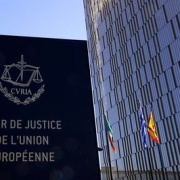The High Court has issued a very important ruling in Shishu & anor -v- The Minister for Justice and Equality [2019] IEHC 566, which provides that the Minister for Justice has incorrectly applied EU law as it relates to the issue of residence cards to dependent family members and members of the same household of an EU citizen who is exercising his or her right to free movement in the State.
This case was brought by two brothers, the first, a naturalised British citizen living and working in Ireland and the second, a citizen of Bangladesh who claims that he lived with and as a dependant of his EU citizen brother in the UK before his brother moved to Ireland to live and work and he travelled to join him in the State.
An application had been made to the Minister for a residence card to be issued to the second brother on the basis that he is the dependant of and a member of the household of the first within the meaning of Regulation 5.1 of the European Communities (Free Movement of Persons) Regulations 2015, which states the following:
Permission for permitted family member to enter State
- (1) This paragraph applies to a person who—
(a) irrespective of his or her nationality, is a member of the family (other than a qualifying family member) of a Union citizen to whom paragraph (2) applies and who in the country from which the person has come—
(i) is a dependant of the Union citizen,
(ii) is a member of the household of the Union citizen, or
(iii) on the basis of serious health grounds strictly requires the personal care of the Union citizen, or
(b) is the partner with whom a Union citizen has a durable relationship, duly attested.
This application was refused in October 2018, with the Minister citing insufficient documentation evidencing the applicant’s dependency on his brother and his membership of the same household in the UK prior to the applicant’s travel to Ireland.
The Judge however found that in this case the documentary evidence provided as to membership of the same household in the initial application was ‘strikingly comprehensive’ stating:
(ii) the court has never previously seen an application of the type now in issue in which such an abundance of evidence was provided as to a particular point.
The Judge went on to state that the Minister in his finding that the applicant had provided insufficient evidence regarding other tenants living at their UK address, the relationship between the applicant and other tenants and as to the length of time the brothers had been living at this address, seemed to go beyond the requirements of the applicable legislation.
Mr Justice Barrett ruled that in the Minister’s decision determining that insufficient documentary evidence had been provided establishing dependency and membership of the same household, the Minister had erred in law in his application of the subsections of section 5 above and had acted unreasonably and/or in breach of EU law and/or the Regulations.
The Judge also ruled that the Minister had acted unreasonably and/or in breach of fair procedures by refusing the application without having outlined the type of documents his office required in evidence of the applicant’s dependency and membership of the same household. The judge criticised the lack of transparency inherent in the ‘closeted’ way in which the Minister is operating the application and decision-making process, one which he found leaves applicants ‘in the blind’ when it comes to trying to satisfy the Minister’s standards of proof.
In this regard the judgment states:
- (3) Did the Respondent act unreasonably and/or in breach of fair procedures in concluding that the second applicant had failed to submit satisfactory evidence that he was a dependent of the first applicant and/or a member of his household, without adopting procedures which would have enabled the second applicant to know what evidence he was required to adduce in order to establish same?
Yes. The court does not consider that a approach by a decision-maker which amounts, in effect, to ‘Put in an application, I will not tell you even at the most general level, not even by way of non-binding guidance, what type of material I am looking for, but I will let you know if I do not see it’ is reasonable or entails fairness of procedure. It is unreasonable and unfair that the Minister should know what, at a general level, he is looking for when it comes to assessing applications generally, but will give no sense to applicants as to what it is that he is looking for, i.e. the unreasonableness/unfairness flows not from the Directive or the Regulations per se but from the closeted manner in which the Minister has elected to discharge his obligations to the detriment of applicants who, as a consequence of his approach, are unfailingly operating to some extent ‘in the blind’ when making an application such as that at issue here.
On the issue of membership of the same household, the Judge highlighted that Ireland, as an EU member state, is obliged under Directive 2004/38/EC to facilitate the entry and lawful residence of members of the household of an EU Citizen exercising his or her right to free movement in the State.
Article 3 of Directive 2004/38/EC provides the following:
Beneficiaries
- This Directive shall apply to all Union citizens who move to or reside in a Member State other than that of which they are a national, and to their family members as defined in point 2 of Article 2 who accompany or join them.
- Without prejudice to any right to free movement and residence the persons concerned may have in their own right, the host Member State shall, in accordance with its national legislation, facilitate entry and residence for the following persons:
(a) any other family members, irrespective of their nationality, not falling under the definition in point 2 of Article 2 who, in the country from which they have come, are dependants or members of the household of the Union citizen having the primary right of residence, or where serious health grounds strictly require the personal care of the family member by the Union citizen;
(b) the partner with whom the Union citizen has a durable relationship, duly attested.
The host Member State shall undertake an extensive examination of the personal circumstances and shall justify any denial of entry or residence to these people.
The Judge on this point noted that the term ‘household’ is not defined in the 2004 Directive or the 2015 Regulations and that it is therefore required to be given its ordinary meaning in the English language and be applied uniformly by EU members states. The Judge however, in reference to an observation of the Court of Justice of the EU, goes on to state that within the context of Article 3.2 of the 2004 Directive it in fact seems that a wider meaning is attributed to the term ‘household’ than that of its ordinary English language meaning.
The Judge held that the Minister in his decision in this case seemed to interpret ‘household’ as referring to a single person/group regularly residing together in the same accommodation and sharing catering arrangements, and did not consider the term to apply to a single dwelling which may contain multiple households not sharing living spaces or catering arrangements.
The judgment states in this regard:
(vi) even if one has regard solely to the English language meaning of “household”, that term is typically understood to embrace [a] a single person or group of people who regularly reside together in the same accommodation and who share the same catering arrangements; However, [b] it is of course possible for a single dwelling to contain multiple households if meals or living spaces are not shared. It seems to the court, with respect, that the Minister in his reasoning has had regard solely to conception [a] of what comprises a household and no regard to conception [b].
The Judge cancelled the Minister’s refusal of the application as a result of the court’s findings and directed that the application be reconsidered by the Minister.
The full judgment can be read here.









